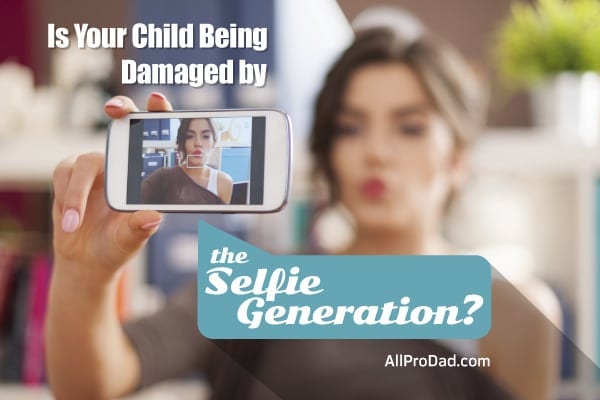Self-portraits are nothing new. Artists have been doing them for centuries. However, those artists weren’t producing ten an hour and posting them for instant voting results. This is the age of the selfie–my least favorite word in our culture today. Seeing young guys and girls posting provocative pictures of themselves, desperate for attention, is enough to make a parent wish for all social networks to disappear. One of the saddest realities I’ve encountered, in recent years, is that high school girls will remove a picture from their Snapchat, Facebook, and Instagram accounts if it receives less than 100 likes. “It validates me,” said one teenager when speaking about receiving online attention. That’s an unfortunate statement and, sadly, it’s the norm.
Pictures go up and teens stare at the screen in the same way a Wall Street trader views a stock ticker. Some think this is a trend that will disappear when the newness wears off. Like reality television, I don’t see it going anywhere anytime soon. Whether it is producing a generation obsessed with themselves and their own image or just revealing an underlying problem, it needs to be addressed. Here are 3 reasons the selfie generation is damaging our kids and why we need to engage it.
Narcissistic Behavior and Tendencies
The selfie is an outlet for self-focus. This brings a need for attention from peers leading to a rise in insecurity when that attention doesn’t come. Conversely, a lot of attention could lead to something potentially worse, in my opinion, an inflated ego and arrogance. Someone that cares only about themselves doesn’t care for others resulting in lower empathy and difficulty maintaining long-lasting relationships.
Lower Self-Esteem
It’s hard enough having a feeling that you are not as liked as others, particularly in middle and high school. Imagine having calculable results for everyone to see when you are in a stage of identity development. After posting a picture, the question they are waiting to see answered is, “What’s my value?” Every “like” they receive, in their mind, makes them worth a little more. Then they compare their results with their peers and the results give them their place in the social structure. Heaven forbid they receive negative feedback, which brings an obvious damaging effect and vulnerability to bullying.
Image over Identity
They are becoming experts at striking poses, forming facial expressions, tilting their head, angling the camera, and choosing exposures that will get the most positive responses. In other words, they are becoming experts at creating an image. It’s what they are working on the most. The problem is that this is not their true self but a creation of what they believe the world wants or finds attractive. The seeds of maturity and depth are left unsown while superficiality remains the play of the day. Identity formation ends up lagging sorely behind, or worse, it becomes distorted.
Addressing the Issue
Be careful voicing too much disapproval. The more you rail against it, the more selfies they’ll want to post. Ask questions to lead them to a healthy way to view themselves. The deep need they have is to be validated, valued, and loved. In the end, they are just searching for it in the wrong place.











Huddle up with your kids tonight and ask, “What makes you valuable?”